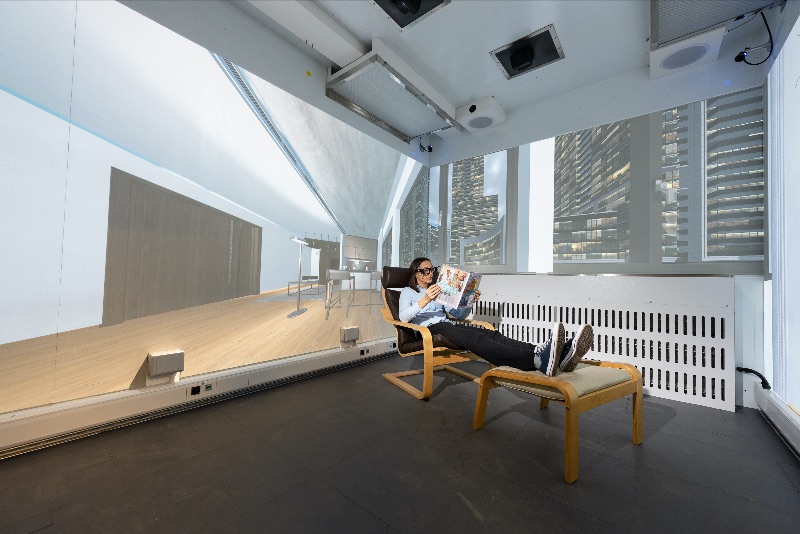Three English universities and Antycip Simulation have come together to produce a VR Cave.
The Universities of Bath, Exeter and Leicester worked on the £4.8 million VSimulators collaborative project. The Engineering and Physical Sciences Research Council (EPSRC) funded the project which hopes to change the way we build structures.
The two VSimulators based at the Universities of Exeter and Bath will allow the engineering, infrastructure and architecture industries to investigate how humans respond to different factors. These inlcude movement and vibrations in buildings and structures.
Antycip took responsibility for producing and installing the projected virtual reality environments.
VSimulators worked closely with Antycip and Make Real in order to perfect the VR images of CAVE. The translation from computer screens and headset VR to projection, particularly with aliasing effects, could be somewhat unpredictable. It required trial and error in order to get it right.
ANTYCIP CAVE
With VSimulators, researchers can analyse how certain movements and different environments affect people psychologically and physically. This will support collaborative research between a range of disciplines. These include engineers, medics, physiologists, architects, bio-mechanists, sports scientist and psychologists, to explore how people respond to their surrounding environment.
The University of Bath VSimulators platform combines projected virtual reality, a climate control chamber and a motion platform. This allows measuring of human factor responses from the built environment on people’s health, well-being and productivity.
Dr Antony Darby, Head of Civil Engineering at the University of Bath, was positive about the facility’s impact.
“We initially anticipated significant interest and use by partners in our immediate community from the civil engineering, infrastructure and architecture fields,” he said. “But we are now also receiving enquiries from partners in other fields such as virtual reality, healthcare technology, balance related issues, biomechanics and sports equipment.
“It’s almost certain that these new devices will help to both attract and retain students and academics at Universities of Bath and Exeter, particularly as the knowledge grows regarding what are now globally unique facilities.”

